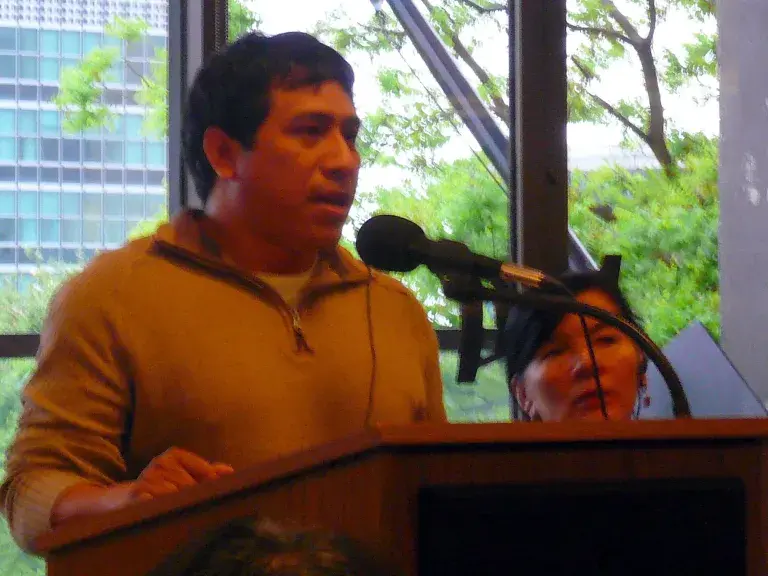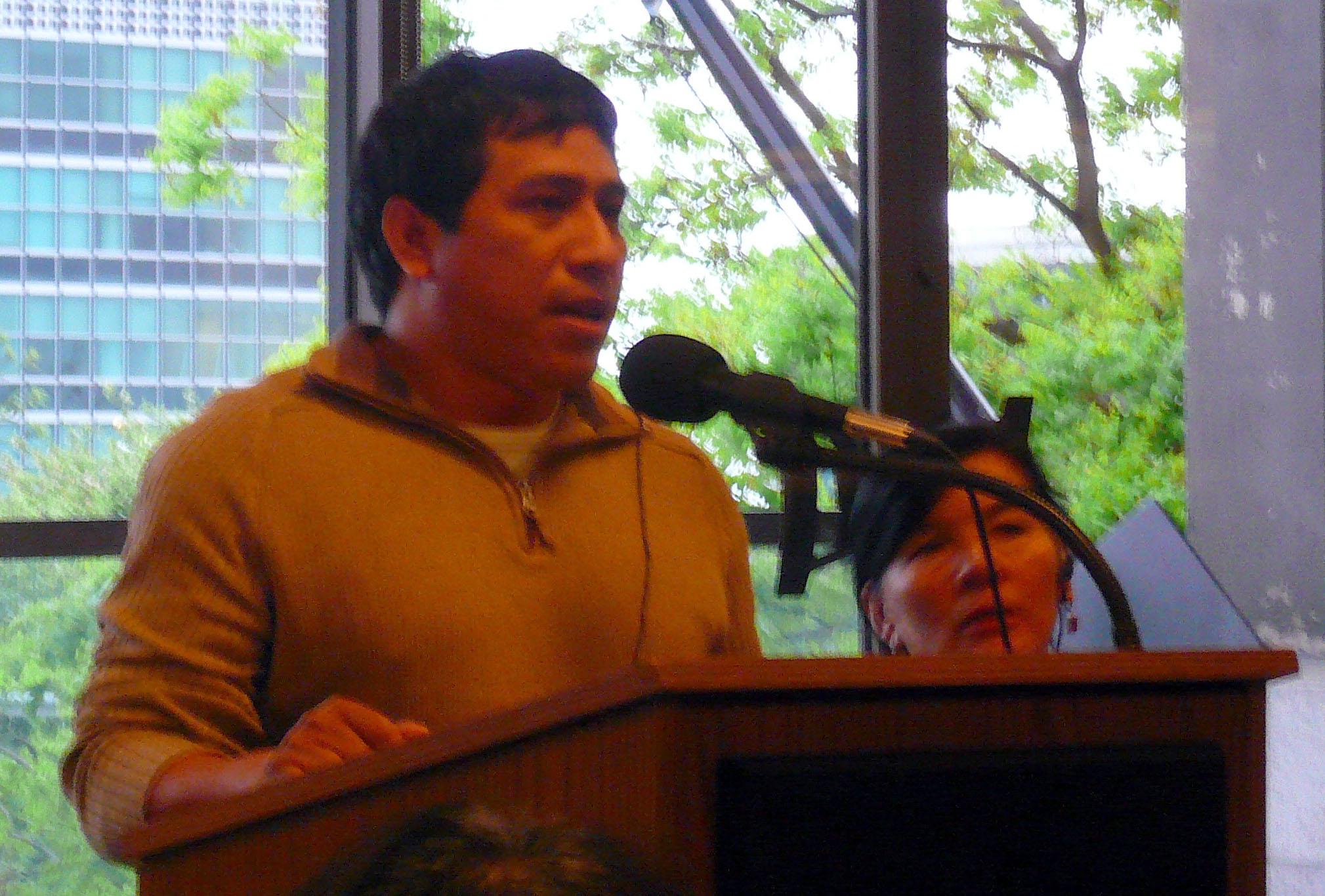
 NEW YORK - A representative of the more than 10,000 Maya Achi Indians displaced or injured during the construction of Guatemala's Chixoy Dam joined with the Indian Law Resource Center this week to call for accountability for human rights abuses associated with large-scale development projects.
NEW YORK - A representative of the more than 10,000 Maya Achi Indians displaced or injured during the construction of Guatemala's Chixoy Dam joined with the Indian Law Resource Center this week to call for accountability for human rights abuses associated with large-scale development projects.
More than 30 years after the construction of the Chixoy Dam, there have been little to no reparations to the 33 communities that faced brutal evictions and human rights violations.
“We are calling on the Permanent Forum on Indigenous Issues to verify and condemn the abuses that occurred during the construction of the dam,” stated Juan de Dios Garcia Xajil, Director of ADIVIMA, the organization that represents the affected communities. “It is urgent that the United Nations act so that the State of Guatemala, the World Bank, and the IDB are sanctioned for their violations of human rights.”
To make way for the construction of the Chixoy Dam in the 1970s and 80s, Guatemalan security forces forcibly evicted entire communities, perpetrated forced disappearances, committed rape and extra-judicial killings, and massacred hundreds of civilians, including women and children. The Banks knew of severe problems with the resettlement process, ignored their own internal guidelines, and continued to fund the dam. “Today we live in precarious settlements, suffering inhumane conditions and extreme poverty,” explains Garcia Xajil.
After decades of struggle, in 2009 the communities, together with the Government, the World Bank and the Inter-American Development Bank, agreed to an inventory of injuries and damages, out of which a Reparations Plan was finalized in 2010. Three years later, however, the Reparations Plan has not been implemented, and the commitments of the Government and the Banks remain unfulfilled.
“The multilateral development banks and their member States have an obligation to respect the rights of indigenous peoples,” stated Armstrong Wiggins, Director of the Washington Office of the Indian Law Resource Center. “The affected communities must be compensated for the injuries they have suffered as a matter of their own right to redress, but also to ensure that this travesty is never repeated.”
ADVIMA and the Center are meeting with representatives of indigenous peoples and States, the UN Special Rapporteur on the Rights of Indigenous Peoples, and human rights organizations to call for reparations in the Chixoy case, and increased accountability of international development banks for the human rights impacts of development activities.
Large-scale development activities continue to threaten indigenous peoples' lands and territories in many parts of the world. How development banks engage with indigenous peoples is a focal point of this year's session of the UN Permanent Forum and a critical issue for the hundreds of indigenous delegates attending the session.
Follow the Center's activities at the Forum at www.indianlaw.org.
###
About the Indian Law Resource Center
The Indian Law Resource Center is a non-profit law and advocacy organization established and directed by American Indians. The Center is based in Helena, Montana, and also has an office in Washington, D.C. We provide legal assistance without charge to indigenous peoples throughout North, Central and South America who are working to protect their lands, resources, human rights, environment and cultures. For more information, please visit us online at www.indianlaw.orgor www.facebook.com/indianlawresourcecenter.
About ADIVIMA
The Association for the Integral Development for the Victims of Violence in Verapaces, Maya Achí (ADIVIMA) is a community-based human rights organization founded by the survivors of the genocide in Guatemala. ADIVIMA’s mission is to seek solutions to social, economic, education and political problems caused by Guatemala’s internal conflict, as well as to ensure that the Peace Accords are carried out and that the historical record is preserved. More information is at www.adivima.org.gt.
